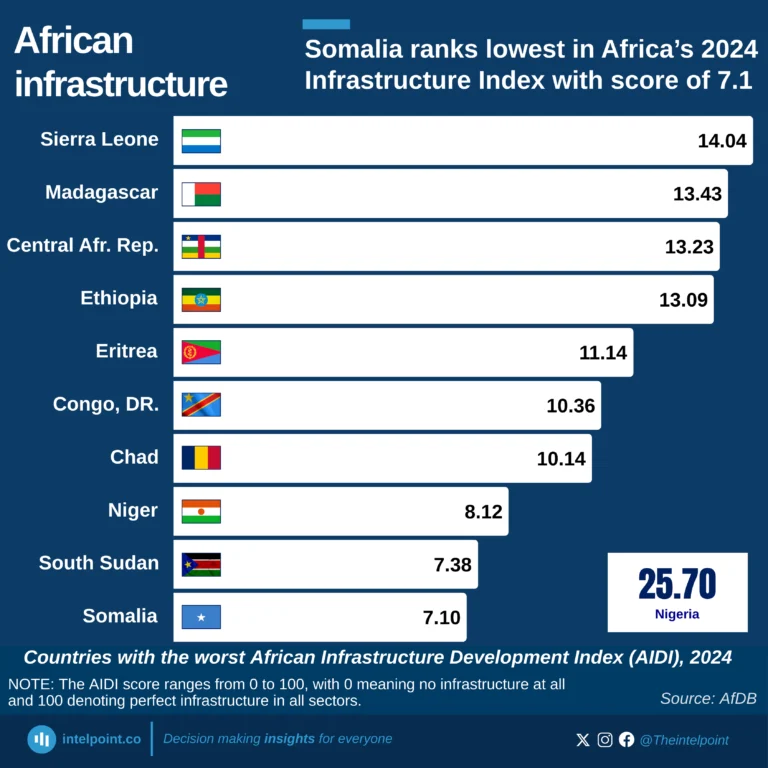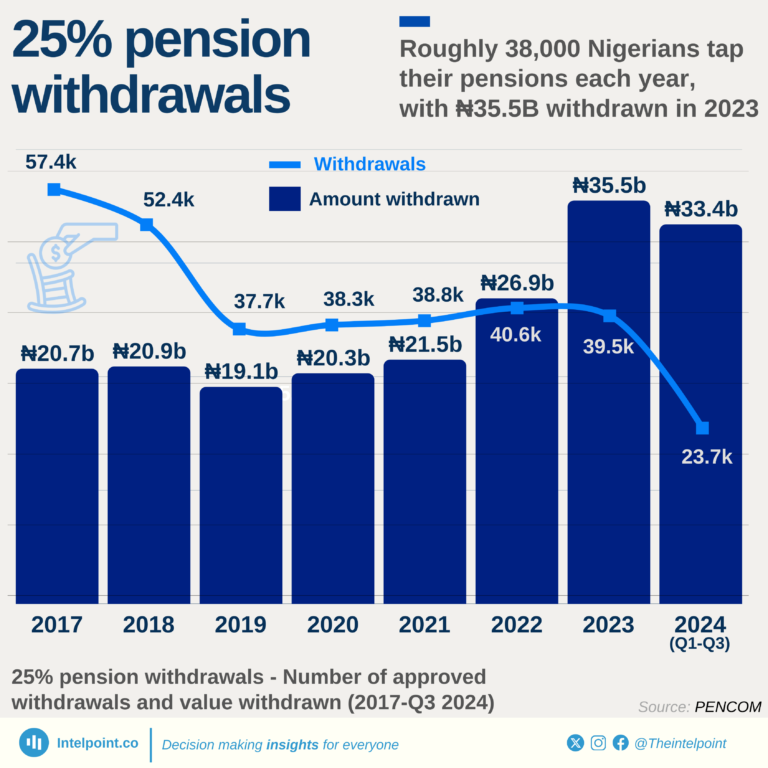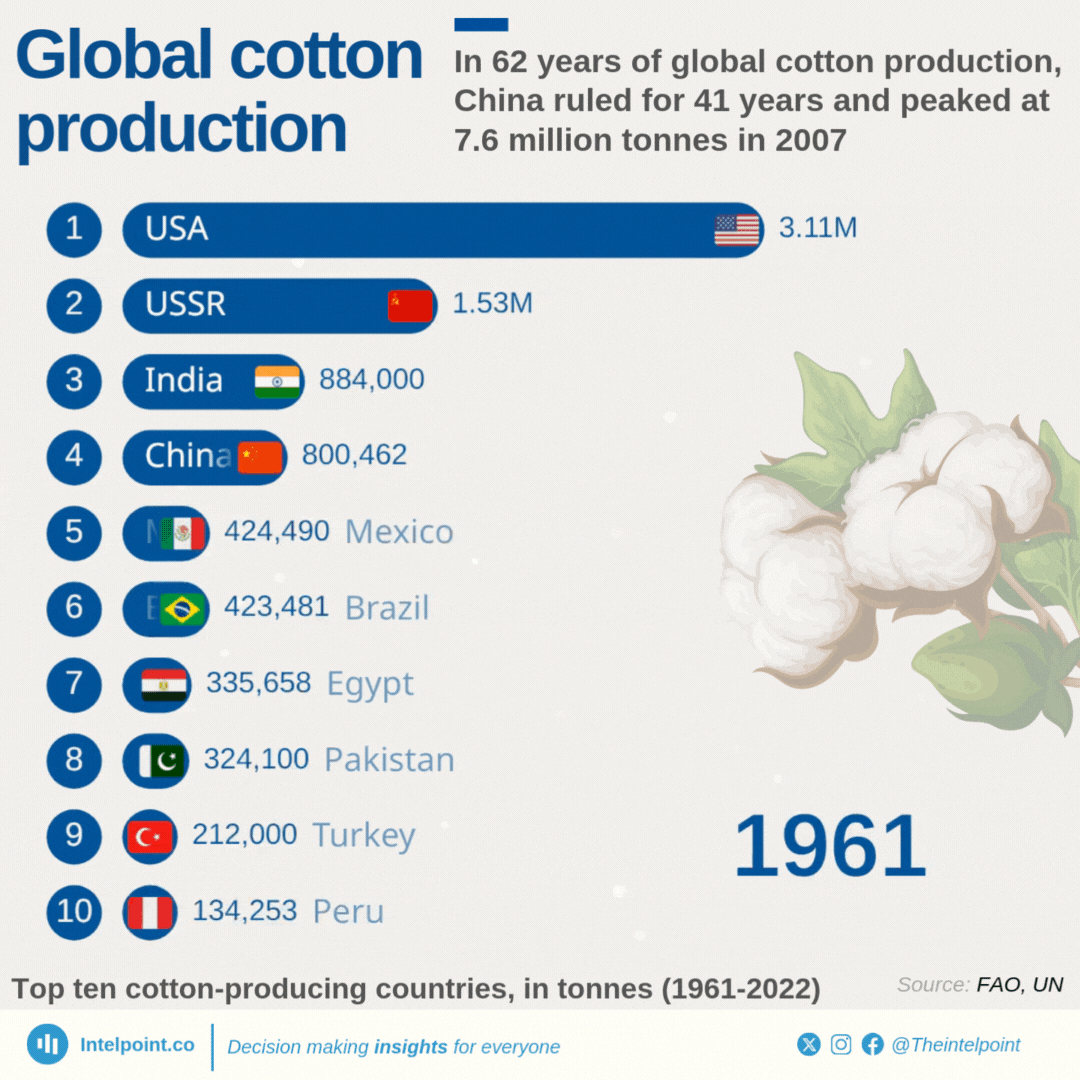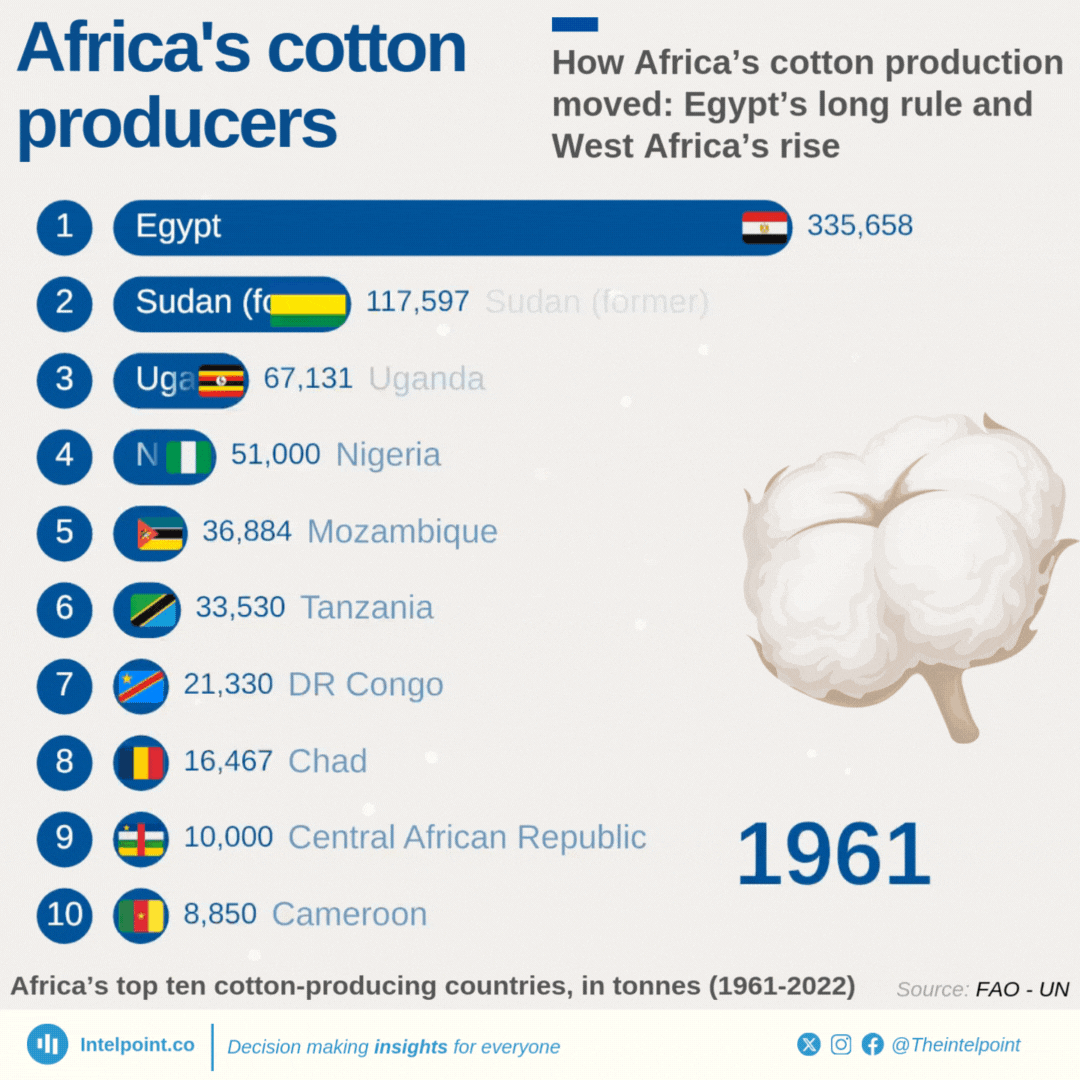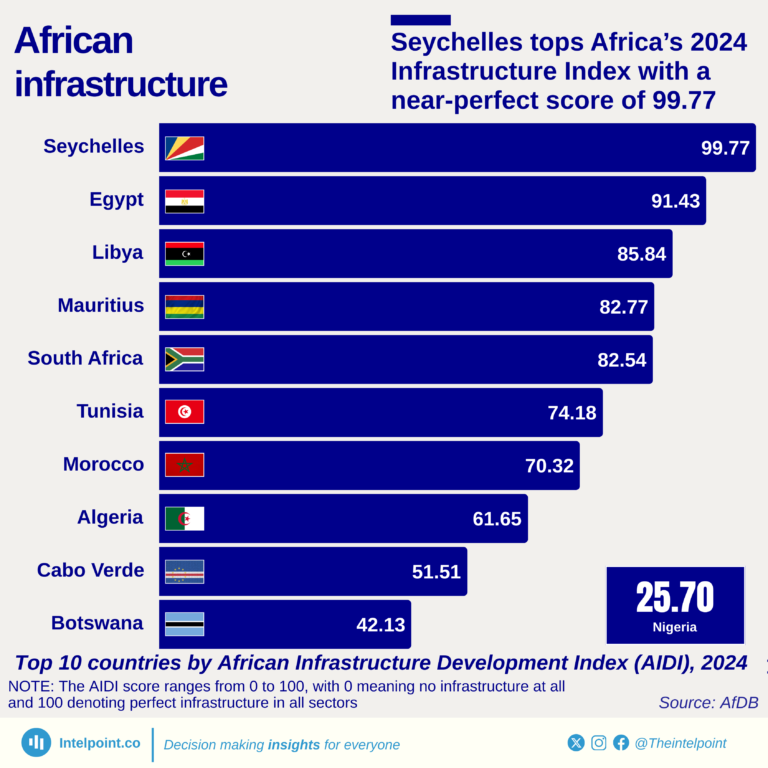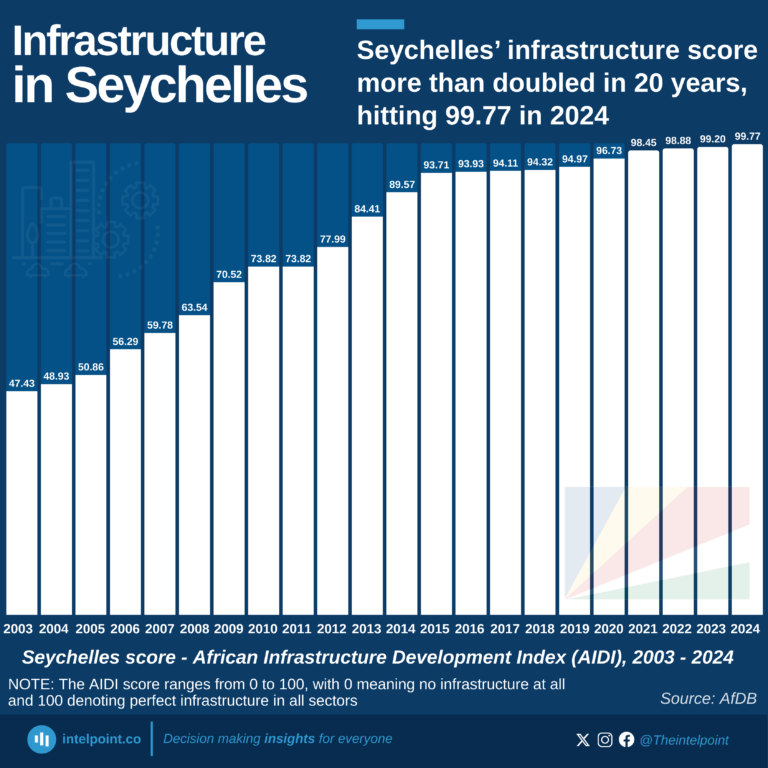
Canada granted permanent residency to 471.8k individuals in 2023, with Indian citizens leading with nearly 30% of the total.
Nigeria (3.7%), Cameroon (2.5%), and Eritrea (2.3%) were in the top ten recipients.

After growing from 1.5% in 2015 and peaking at 5.1% in 2022, Nigeria's share of Canadian permanent residency status issuances dropped to 3.7% in 2023.
This is Nigeria's share of Canadian permanent residency status issuances since 2015.
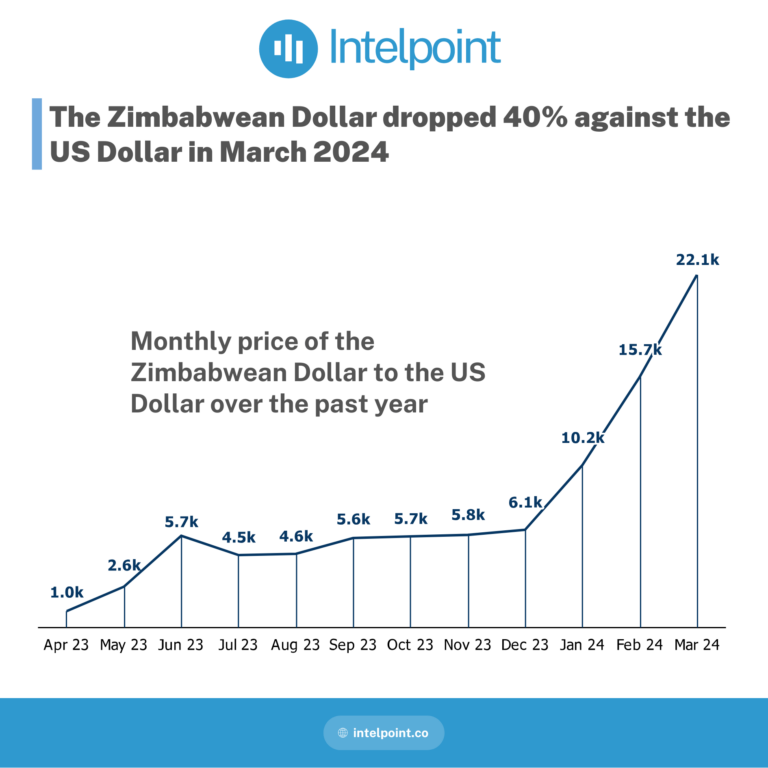
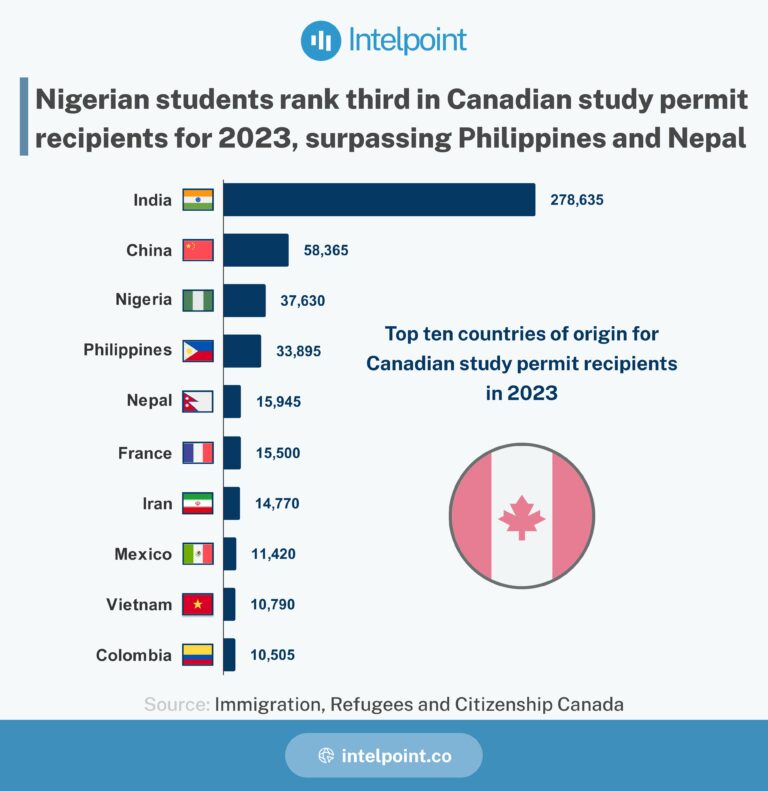
In 2023, Nigerian students emerged as the third-highest recipients of Canadian study permits, behind India and China.
This marked a jump from their fifth position in 2022, when 16,105 study permits were issued to its citizens.
India maintained its position as the top source country, followed by China. The Philippines, Nepal, and France retained their places in the top ten.
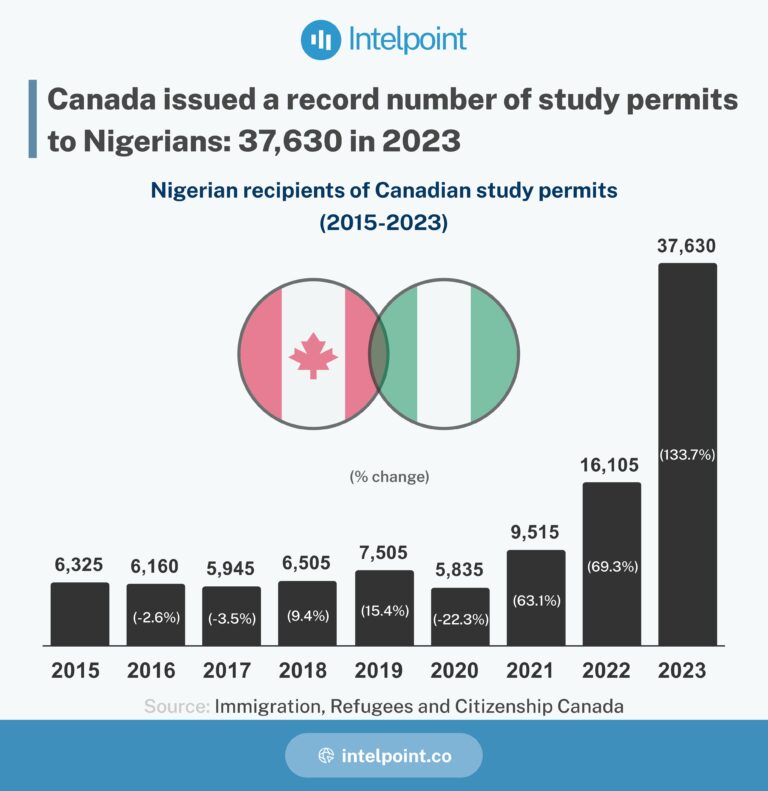
Compared to 2022, there was a remarkable surge of 133.7% in the issuance of Canadian study permits to Nigerians in 2023. After experiencing a decline in 2020 (-22%), the number of Nigerian study permit recipients rebounded strongly.
Globally, the issuance of Canadian study permits witnessed an increase of 24.6%, climbing from 548,610 in 2022 to 683,585 in 2023.
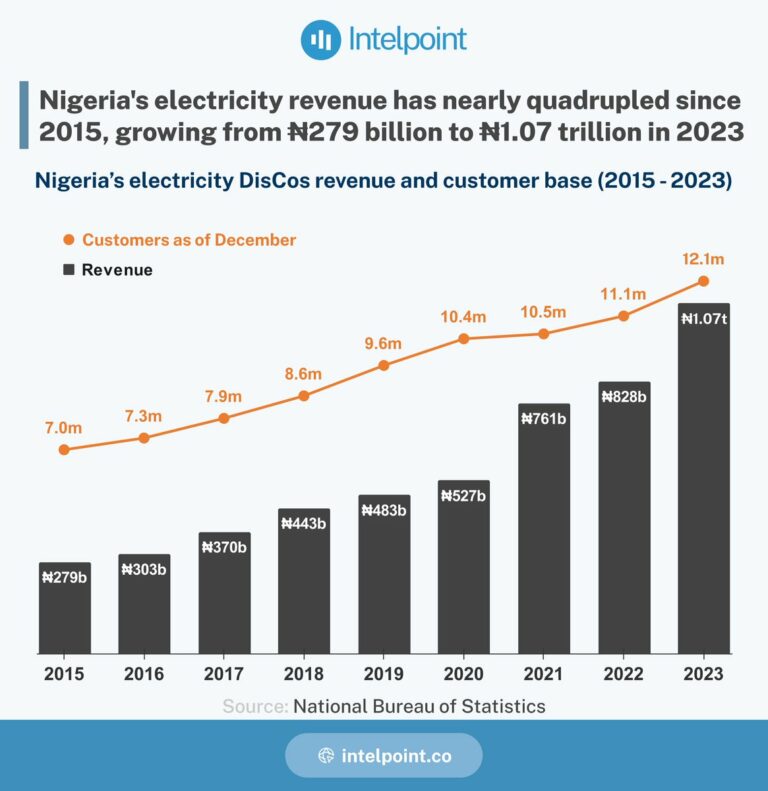
Nigeria’s electricity distribution companies (DISCOs) generated ₦1.07 trillion revenue in 2023 — double 2020's amount and 3.8x that of 2015. From 2015 to 2023, revenue has grown from ₦279b to ₦1.07t, while customer base has increased by over 5m, from 7m to 12.1m.
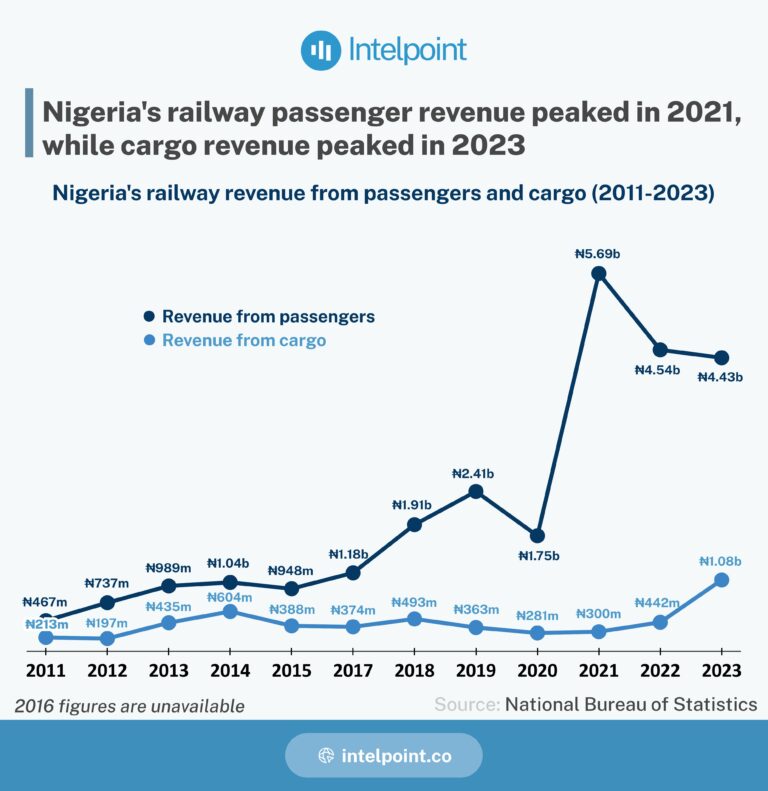
After peaking at ₦5.69b in 2021, Nigeria's railway revenue from passengers has fallen for two consecutive years, dropping to ₦4.43b in 2023. Cargo revenue, on the other hand, reached its highest (₦1.08b) in 2023.y revenue from passengers has fallen for two consecutive years, dropping to ₦4.43b in 2023. Cargo revenue, on the other hand, reached its highest (₦1.08b) in 2023.

Newzoo, a provider of video game and gamer data, reported that in 2023, Nigerian mobile gamers spent approximately $229.7m — the highest expenditure in Africa — boasting a sizable 14.7m spenders.
Egypt's gamers spent an estimated $212.6m and occupied second place in Africa's mobile gaming expenditure ranking.
